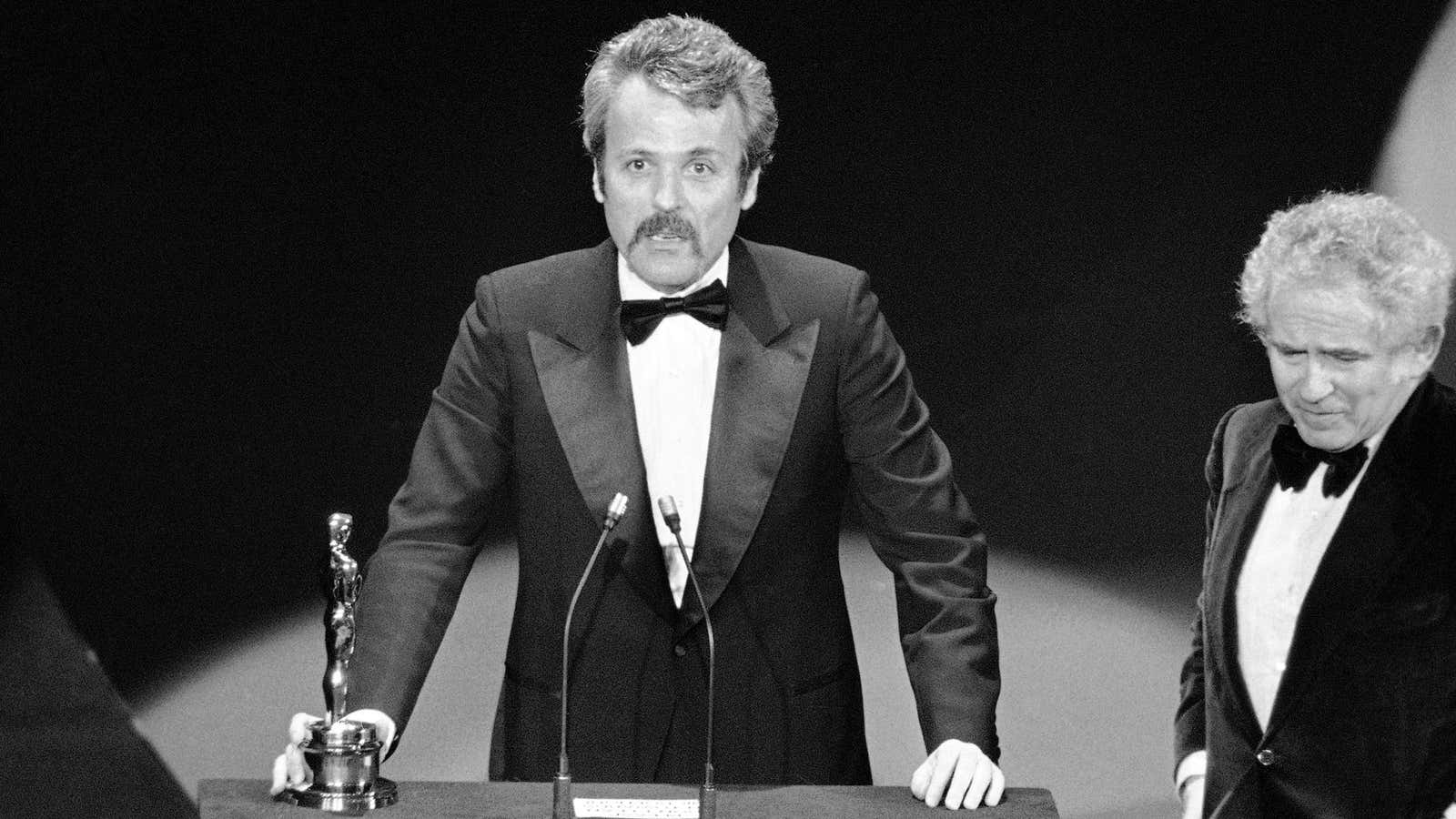Most people knew William Goldman as the Oscar-winning screenwriter of Butch Cassidy and the Sundance Kid, All the President’s Men, and The Princess Bride. That level of achievement alone is more than most writers could ever dream of, enough to cement Goldman’s status as one of Hollywood’s all-time great wordsmiths. But Goldman also had a hugely successful second career in the movie business—one he received far less credit for (literally).
Goldman, who died last night at 87, was a prolific script doctor—a writer hired by a film to fix or “punch up” its screenplay. It’s an unheralded practice that can sometimes be incredibly difficult, as practitioners must know how to dissect someone else’s work, diagnose its problems, and prescribe remedies. (A doctor…for scripts.) The job combines the roles of writer and editor. It’s both artful and academic.
Because of Writers Guild of America rules, script doctors usually don’t get any formal credit for fixing a screenplay. There’s no fame or accolades in script doctoring. On rare occasions, if a movie is big and important enough, you’ll hear tales about writers being brought in to save the script. Usually, though, Hollywood movie scripts get the doctor treatment and viewers are none the wiser.
That clearly didn’t bother Goldman. Maybe that’s because he was already an acclaimed screenwriter in his own right when he started script doctoring in the late 1980s (he had won two Academy Awards by that point). Or maybe—and this seems more likely, according to those who worked with him—he just cared about telling the best possible story.
Legend has it that Goldman—not Matt Damon or Ben Affleck—is the true author of Good Will Hunting. Goldman has long denied it, but he did cop to helping the Boston duo make an enormous, potentially film-saving change to the story. In his book Which Lie Did I Tell? (a must-read for aspiring screenwriters), Goldman revealed that the original script had an entire wacky subplot about the US government going after Damon’s character for his intellect. He told the writers, who at the time were both relatively unknown 20-somethings, that they needed to scrap all that and focus on the characters. And so they did. The film was nominated for nine Oscars, and Damon and Affleck won for their screenplay.
And then there was The Silence of the Lambs, a film that probably didn’t need Goldman’s help but became that much better for it. The film’s director, the late Jonathan Demme, told Deadline in 2016 that he showed the nearly finished film to Goldman, who at the last minute came up with the bold idea to completely cut a pivotal 10-minute scene from the psychological thriller. It worked.
“It was just an extraordinary difference, an immeasurable improvement,” Demme said. “That is William Goldman.”
Goldman’s other feats in script doctoring include Twins, A Few Good Men, Indecent Proposal, and Extreme Measures. Aaron Sorkin, the screenwriter of A Few Good Men and himself one of Hollywood’s writing legends, called Goldman “the dean of American screenwriters” in a statement today.
“Generations of filmmakers will continue to walk in the footprints he laid,” Sorkin added.
